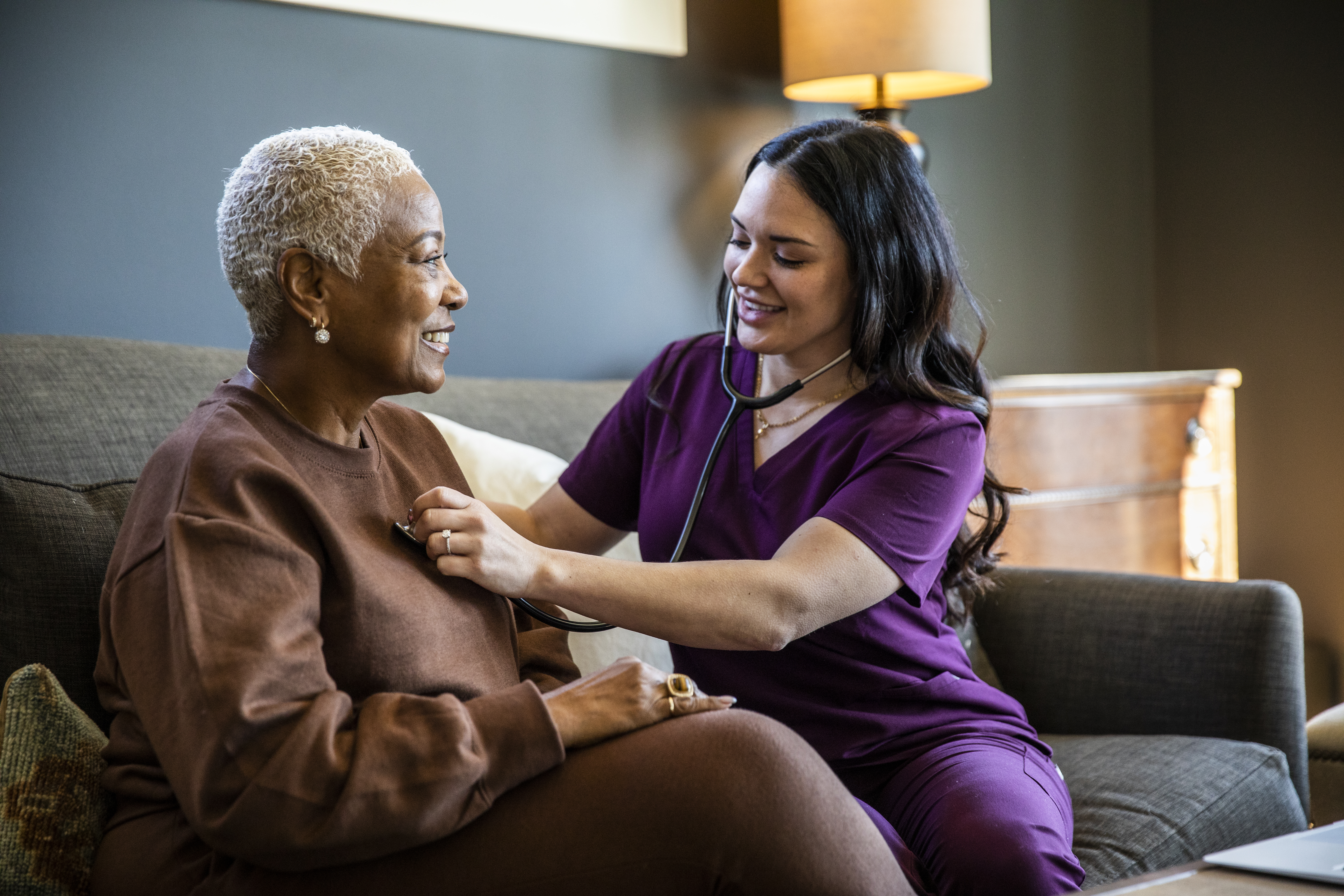
Post-Acute Care
With over 1.5 million members under management, the EviCore by Evernorth® Post-Acute Care (PAC) solution helps ensure that members receive appropriate post-acute care in skilled nursing facilities (SNFs), long-term acute care facilities (LTACs), inpatient rehabilitation facilities (IRFs) and through home healthcare agencies (HH). We partner with providers to coordinate care for these members and continue to support their transitions and recovery at home following discharge, with the goal of reducing readmissions.
EviCore is a recognized leader in transforming post-acute care—driving better health outcomes, enhancing member experience and reducing total cost of care.
The EviCore PAC solution helps improve cost and quality outcomes via:
- Utilization management to optimize financial results and improve efficiency by guiding to the appropriate level of care and length of stay
- Care coordination through member-specific, individualized discharge planning to enhance outcomes and reduce readmissions, improving the member and caregiver experience
- Transition of care (TOC) programs that combine discharge planning with in-home/ virtual/ telephone follow-up; designed to speed recovery, identify risks and lower readmissions
- Provider network management and support, as our Provider Engagement teams build collaborative relationships and our clinicians work closely with PAC providers and facilities to support members’ individualized care plans
Transforming recovery
The EviCore PAC program is designed to deliver the right care at the right time—efficiently, effectively and with measurable impact. By guiding members through optimized recovery pathways, we help reduce unnecessary utilization and improve outcomes.
- Savings and reduced costs. An average 10% reduction in total post-acute care costs
- 53% decrease in LTACs and rehab admissions for members*
- 27% decrease in SNFs length of stay
- 9% reduction in Home Health utilization per 1,000 patients
- 8% decrease in readmissions (PAC and TOC)
Transitions of care
Our far-reaching support ensures members maintain health progress after leaving facility care and are connected to the management resources they need, including:
- Primary care provider (PCP) and specialist follow-up
- Referrals to health plan care management and benefits
- Individualized risk assessments
- Social worker support
- Medication reconciliation
- Caregiver education
- Regular RN outreach and health surveys
- Program components influence Medicare Stars measures such as medication reconciliation, pain, advanced care planning and fall risk.
Recovery after hospitalization doesn’t happen overnight, and no one should do it alone. EviCore will be there every step of the way to help members worry less about coordinating complex post-acute care and focus on getting and staying healthy.
Increased savings
Our PAC services result in increased savings. By implementing a multilevel care coordination product which positively impacts length of stay and readmissions. This patient-centric approach has resulted in positive outcomes and cost savings for our clients.
Dedicated social workers
Aligned by market, our social workers partner directly with EviCore nurses and PAC facility staff to address social determinants of health and discharge barriers in addition to identifying community resources to support members as they transition home.
Clinical expertise
Our nurses and medical directors undergo special training to have deep knowledge of clinical guidelines for all PAC services (SNF, IRF, LTAC). These medical directors span a variety of specialties and are board certified in their respective fields of practice.
Collaborative client partnership
Our collaborative approach and open architecture mean that we have the flexibility to address buyer-specific needs—from pricing to network engagement and even vendor collaboration.
Personalized member engagement
We perform service validation calls to each member receiving Home Health and can quickly identify and solve issues with missed visits or other barriers to care.
Care Management is how EviCore utilizes a coordinated approach to improve patient outcomes.
- Member Support: We coordinate care and serve members as they move between post-acute facilities to the home. This multimodal care delivery results in continuity of care via virtual and telephonic communication.
- Care Planning: EviCore Medical Directors conduct weekly case rounds with their team of nurses and social workers to address any clinical concerns as well as social determinants of health to allow for safe discharge planning.
- Provider Support: Our provider engagement team is available to support and train all providers on the digital platforms to allow for seamless care for all members.
- Product Offerings: Our PAC products are flexible and customizable to our client needs. Our patient centric approach creates a collaborative environment that serves both the client and the member efficiently and effectively.
Frequently Asked Questions
Post-acute care is care that is provided to members after hospitalization. PAC services can be provided in specialized facilities or in the home and are typically provided until the member regains their strength. Post-acute care serves as either a bridge to optimal recovery or a long-term chronic care program.
When a request is made for post-acute or home health services, EviCore’s nurses and medical directors review it to ensure the member’s level of care aligns with evidence-based guidelines.
As the member receives care in a facility or through a home health agency, EviCore’s nurse managers actively monitor their progress and update their care plan as needed. Weekly case conferences with facility teams help ensure the member receives appropriate care and recovers as expected.
EviCore’s nurses and social workers also collaborate with these teams to plan for a safe discharge and address any health barriers, and they continue to monitor the member’s status for up to 90 days after the member returns home to help prevent readmissions.
Yes. EviCore can partner with other vendors while continuing to deliver the full benefits of our program. For example, if your organization works with a vendor to provide post-discharge meal benefits, EviCore will coordinate with them to share discharge plans, ensuring members receive their meals promptly after returning home from a PAC facility.
EviCore offers transition of care for all members receiving post-acute care (PAC) services to help reduce the rate of readmissions after members return home from facilities. This program is typically conducted by telephone for 30 or 90 days post discharge. We can also perform in-home transitions of care visits if health plan clients are interested in including this service alongside the PAC program.
An aging population, rising healthcare costs, and the prevalence of chronic diseases are among the contributors to the post-acute care industry's tremendous growth, a trajectory that is projected to continue from now until at least 2024.
